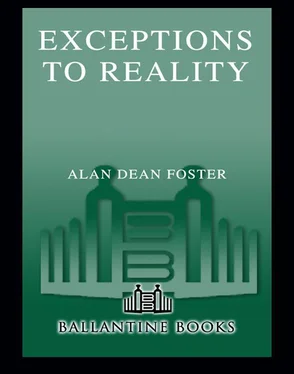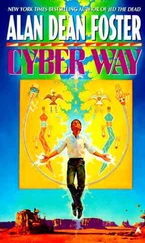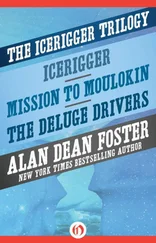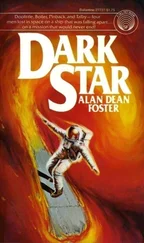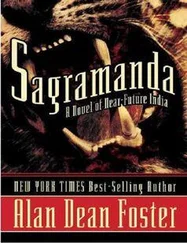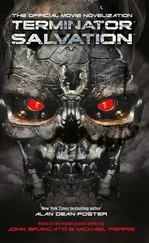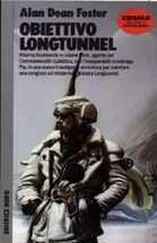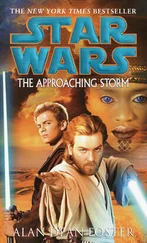Alan Foster - Exceptions to Reality
Здесь есть возможность читать онлайн «Alan Foster - Exceptions to Reality» весь текст электронной книги совершенно бесплатно (целиком полную версию без сокращений). В некоторых случаях можно слушать аудио, скачать через торрент в формате fb2 и присутствует краткое содержание. Жанр: Старинная литература, на английском языке. Описание произведения, (предисловие) а так же отзывы посетителей доступны на портале библиотеки ЛибКат.
- Название:Exceptions to Reality
- Автор:
- Жанр:
- Год:неизвестен
- ISBN:нет данных
- Рейтинг книги:4 / 5. Голосов: 1
-
Избранное:Добавить в избранное
- Отзывы:
-
Ваша оценка:
- 80
- 1
- 2
- 3
- 4
- 5
Exceptions to Reality: краткое содержание, описание и аннотация
Предлагаем к чтению аннотацию, описание, краткое содержание или предисловие (зависит от того, что написал сам автор книги «Exceptions to Reality»). Если вы не нашли необходимую информацию о книге — напишите в комментариях, мы постараемся отыскать её.
Exceptions to Reality — читать онлайн бесплатно полную книгу (весь текст) целиком
Ниже представлен текст книги, разбитый по страницам. Система сохранения места последней прочитанной страницы, позволяет с удобством читать онлайн бесплатно книгу «Exceptions to Reality», без необходимости каждый раз заново искать на чём Вы остановились. Поставьте закладку, и сможете в любой момент перейти на страницу, на которой закончили чтение.
Интервал:
Закладка:
“Time to cash in, mate! Remember the hairy princess’s promise.”
Following at a more leisurely pace, Jon-Tom was just in time to see his friend fling open his front door—only to be buried beneath an avalanche of gleaming golden discs. Hurrying forward, he dragged the otter clear of the mountain of metal.
“Rich, rich! At last! Finally!” The otter was beside himself with glee.
Or was, until he peered more closely at a handful of the discs. Doubt washed over his furry face. “’Tis odd, mate, but I swear I ain’t never before seen gold like this.”
Gathering up a couple of the discs, Jon-Tom regarded them with a resigned expression. “That’s because it’s not gold, Mudge.”
“Not gold?” Sputtering outrage, the otter sprang to his feet. Which, given the shortness of his legs, was a simple enough maneuver. “But the princess bleedin’ promised, she did. ‘The last golden coin I ’andled,’ she said. I remember! That were wot that slimy Wolfram character paid us with at the tavern back in Timswitty.” His expression darkened. “You’re shakin’ your ’ead, mate. I don’t like it when you shake your ’ead.”
“She said ‘gold en coin,’ Mudge. Not ‘gold coin.’” His open palm displayed the discs. “Remember when we were fleeing my world? These are London Underground tokens, Mudge.” At the otter’s openmouthed look of horror, he added unhelpfully, “Look at it this way: You can ride free around Greater London for the rest of eternity.”
Sitting down hard on the useless hoard, the otter slowly removed his feathered cap from between his ears and let it dangle loosely from his fingers. “I don’t suppose—I don’t suppose you ’ave a worthy spellsong for rescuin’ this sorry situation, do you, mate?”
Bringing the duar around, Jon-Tom shrugged. “No harm in trying.”
But Pink Floyd’s “Money” did not turn the tokens to real gold, nor did all the otter tears that spilled into the black river all the rest of that memorable day…
Redundancy
This story was originally commissioned for UNIX magazine. New intelligent software had been developed that allowed a computer to make decisions not only based on a predetermined set of standards, but also by appraising and evaluating situations and reaching an appropriate conclusion on its own. Similar software helps the Mars rovers to navigate independently while out of the range of communication with Earth.
The tale never appeared in UNIX magazine because, according to the editor who commissioned it, his superiors felt that a science-fiction story was not appropriate for a venue that dealt with actual science. This would, I think, be news to several generations of scientists, engineers, and researchers who have ofttimes been inspired by the science-fiction stories they read while growing up.
In composing stories, I frequently have to try to put myself in the mental and physical position of various aliens. Though designed by humans, nonhumanoid machines still qualify as perfectly alien. What, really, is your computer thinking when you put it, and yourself, to sleep? Relying entirely on the standards and practices that have been programmed into it, how could one possibly make what in the last analysis amounts to a moral or ethical decision?
In Tom Godwin’s classic SF story “The Cold Equations,” a human is forced to make a life-or-death decision in a machine-like fashion.
What if the reverse were true?

Amy was onlyten, and she didn’t want to die.
Not that she really understood death. Her only experience with it had come when they had buried Gramma Marie. Now the funeral was a wisp of a dream that hung like cobweb in the corners of her memory, something she did not think of at all unless it bumped into her consciousness accidentally. Even then it was no more than vaguely uncomfortable, without being really hurtful.
She did not recall a lot about the ceremony itself. Black-clad grown-ups speaking more softly than she had ever heard them talk, her mother sobbing softly into the fancy lace handkerchief she never wore anywhere, strange people bending low to tell her how very, very sorry they were—everything more like a movie than real life.
Mostly she remembered the skin of Gramma Marie’s face, so fine and smooth as she lay on her back in the big shiny box. The fleshy sheen mirrored the silken bright blue of the coffin’s upholstery. Such a waste of pretty fabric, she remembered thinking. Better to have made skirts and party dresses out of it than to bury it deep, deep in the ground. She liked that idea. She thought Gramma Marie would have liked it, too, but she couldn’t ask her about it now because Gramma Marie was dead, and people couldn’t talk to you anymore once they were dead. Not ever again. That was the thing she disliked most about death: not being able to talk to your friends anymore.
Thinking about it made her shiver slightly. She knew she was in big trouble, and she didn’t want to end up looking like Gramma Marie.
The potato vines and the carrots and the lettuce had not yet begun to die, though the leaves on the fruit trees were already starting to droop. Some had been killed by the explosion, torn to bits or ripped up and hurled violently against one another. One of the big pear trees had been blown to splinters. Smashed pears lay scattered across the floor like escapees from a Vermeer still life. Amy knew that the others would start dying soon, now that the hydroponic fluid that nourished their growth had stopped circulating and the special lights used to simulate the sun had gone out. The heaters were off, too, though some residual warmth still emanated from their internal radiant elements. The temperature was falling steadily, soaked up by the thirsty atmosphere of the rapidly cooling station module.
What really frightened her, though, was not the darkness or the gathering cold. It was the persistent, angry hiss that came from the base of the wall at the far end of the module. She couldn’t see the leak, but she could hear it. She tried putting some empty sacks over the hiss and then piling furniture on them. It muted the noise, but did not stop it. So she backed as far away from it as she could, all the way back across the room, as if retreating from a dangerous snake. There were four safety doors in the big module, designed to divide it into airtight quarters in the event of a leak. Not one of them had closed. She didn’t know why, but she guessed that the explosion had broken something inside them, too.
She wondered if she would know it when the air finally ran out.
She would have asked Mr. Reuschel about it, but he was already dead. He did not look at all like Gramma Marie had. His mouth hung open and instead of lying neat and straight on his back he was all bent and twisted on the floor where the explosion had thrown him. She didn’t know for certain he was dead, but she was pretty sure. He did not reply to any of her questions and he didn’t move at all, not even when she touched his eye. When she put her palm up to his mouth the way she had been taught to in school she couldn’t feel anything moving against her skin.
He had been the gardener on duty when everything had blown up. Daddy called him a hydroponics engineer, but Amy just thought of him as the gardener. Ms. Anwalt was the other gardener. Like everyone else on the station she probably knew about the explosion by now and would be anxious to check on the garden, but she couldn’t. No one could because the access door didn’t work anymore. The explosion had broken it just like it had broken Mr. Reuschel.
Читать дальшеИнтервал:
Закладка:
Похожие книги на «Exceptions to Reality»
Представляем Вашему вниманию похожие книги на «Exceptions to Reality» списком для выбора. Мы отобрали схожую по названию и смыслу литературу в надежде предоставить читателям больше вариантов отыскать новые, интересные, ещё непрочитанные произведения.
Обсуждение, отзывы о книге «Exceptions to Reality» и просто собственные мнения читателей. Оставьте ваши комментарии, напишите, что Вы думаете о произведении, его смысле или главных героях. Укажите что конкретно понравилось, а что нет, и почему Вы так считаете.
